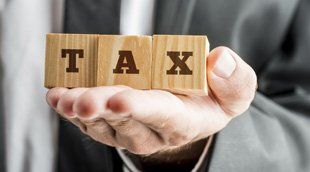January & February 2023
Legislation to make certain electric vehicles exempt from Fringe Benefits Tax (‘FBT’) has now been enacted into law.
Certain zero or low emissions vehicles provided as a car benefit on or after 1 July 2022, can be exempt from FBT.
For this exemption to apply various criteria need to be satisfied.
The car needs to have been both held and used for the first time by the employer on or after 1 July 2022 and it cannot have been subject to the luxury car tax when it was purchased.
For the 2023 income year, to qualify for this exemption, the car needs to cost less than the luxury car tax threshold for fuel efficient vehicles of $84,916. A vehicle is a zero or low emissions vehicle if it satisfies both of these conditions:
- It is a:
- battery electric vehicle; or
- hydrogen fuel cell electric vehicle; or
- plug-in hybrid electric vehicle.
- It is a car designed to carry a load of less than 1 tonne and fewer than 9 passengers (including the driver).
Motorcycles and scooters are not cars for FBT purposes and do not qualify for the exemption, even if they are electric. Please note that in relation to plug-in hybrid electric vehicles, there is a specific limitation on the FBT exemption.
From 1 April 2025, a plug-in hybrid electric vehicle will not be considered a zero or low emissions vehicle under FBT law. There are special provisions allowing the exemption to continue when a plug-in vehicle was provided as an exempt benefit under an agreement entered into before 1 April 2025 that continues after this date.
Although the private use of an eligible electric car is exempt from FBT, an employer still needs to include the notional value of the benefit when working out whether an employee has a reportable fringe benefits amount (‘RFBA’).
An employee has an RFBA if the total taxable value of certain fringe benefits provided to them (or their associate) is more than $2,000 in an FBT year. The RFBA must be reported through Single Touch Payroll or on the employee's payment summary.
The amount of an RFBA reported for an employee is not added to an employee’s taxable income for determining income tax and Medicare Levy liabilities.
Also discussed in this month's update includes:
- Super guarantee contributions for the December 2022 quarter
- Further eligibility age change for downsizer contributions
- Builder unable to obtain refund of incorrectly charged GST
Business Advisory
We offer tailored and well-grounded advice to help your business realise its potential.
Audit & Assurance
Our specialist audit services give you confidence and reliability in your numbers.
Accounting & Tax Compliance
We offer a range of services to help relieve you of your accounting and tax compliance matters.
Liability limited by a Scheme approved under Professional Standards Legislation.



